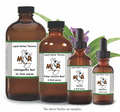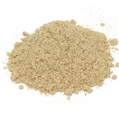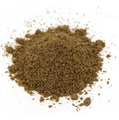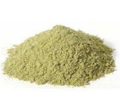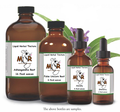 Loading... Please wait...
Loading... Please wait...- Home
- Bulk Herbs
- Herbs (B)
- Blessed Thistle Herb Powder
- Home
- Herbs - Organically Grown & Wild Crafted USA
- A-B
- Blessed Thistle Herb Powder
- Home
- Herbs from Hawaii
- Blessed Thistle Herb Powder
Blessed Thistle Herb Powder
Product Description
Blessed Thistle Herb Powder
Also Known As - Centaurea benedicta, Carbenia benedicta, Cardo Santo, Carduus, Carduus benedictus, Cnici Benedicti Herba, Cnicus, Holy Thistle, Spotted Thistle, St. Benedict Thistle.
Origin - Organically Grown Kauai, Hawaii
Overview - Not to be confused with Milk Thistle (Silybum marianum). Blessed thistle is native to the Mediterranean, a member of the Aster family (asteraceae) that was grown in the gardens of monks and used to make bitter tonics and liqueurs and was documented in the literature as plant with multiple health imparting properties. It is mentioned in virtually all the writings issued during times of epidemic infectious diseases, including Shakespeare's Much Ado About Nothing. No doubt you are wondering how it came to be called "blessed"? During the reign of the medieval king Charlemagne his troops were infected with the plague. An angel came to Charlemagne in his sleep and told him that if he were to shoot an arrow in the air, the arrow would land on the plant that would cure his men. The arrow fell on a big patch of Cnicus benedictus, and the emperor fed it to his troops. Their lives were saved, and the plant was dubbed the Blessed Thistle.
Medicinal Uses - The use of bitter plants to tonify digestion is one of the primary tools in the herbalists repertoire. Proper digestion is the foundation of health. Blessed thistle does contain bitter principles called sesquiterpenes which also impart the bitter taste to the wormwoods (Artemisia) and to Ginkgo biloba. Bitters stimulate the secretion of digestive juices in the stomach and support the breakdown of fats, supporting a healthy appetite and assisting in the assimilation of nutrients. The tea has been used historically by midwives and naturopaths to support healthy breast milk production.
- Blessed Thistle acts as a general tonic to the female reproductive system, as well as helping to balance the hormones. It is often used by lactating women to stimulate blood low to the mammary glands and increases the flow of milk. Blessed Thistle is used to strengthen the heart, and is useful in remedies for lung, kidney, and liver problems.
Active Constituents - Tannins, bitter principles (sesquiterpene lactones), Cnicin.
Parts Used - Dried leaves, stems, and flowers.
Preparations and Dosages - As a tea infusion, in capsules or as an extract, or externally as a poultice for boils and wounds.
- Tea: 1 oz. dried herb to 1 pint of boiling water.
Precautions - Not for use during pregnancy. If you are allergic to artichokes, avoid this herb.
Disclaimer - These products are dietary supplements and are not intended to diagnose, treat cure or prevent any disease. Reviews are not intended as a substitute for appropriate medical care or the advice of a physician or another medical professional. Actual results may vary among users. Mountain Maus Remedies LLC makes no warranty or representation, expressed or implied, as to the accuracy or validity of the information contributed by outside product review submissions, and assumes no responsibility or liability regarding the use of such information. The information and statements regarding the dietary supplements have not been evaluated by the Food and Drug Administration. If you have a medical condition or disease, please talk to your health care provider. If you are currently taking a prescription medication, you should work with your health care provider before discontinuing any drug or altering any drug regimen, including augmenting your regimen with dietary supplements. Do not attempt to self-diagnose any disease or ailment based on the reviews and do not use the information contained herein for diagnosing or treating a health problem or disease. Proper medical care is critical to good health. If you have a health concern or suspect you have an undiagnosed sign or symptom, please consult a physician or health care practitioner.







